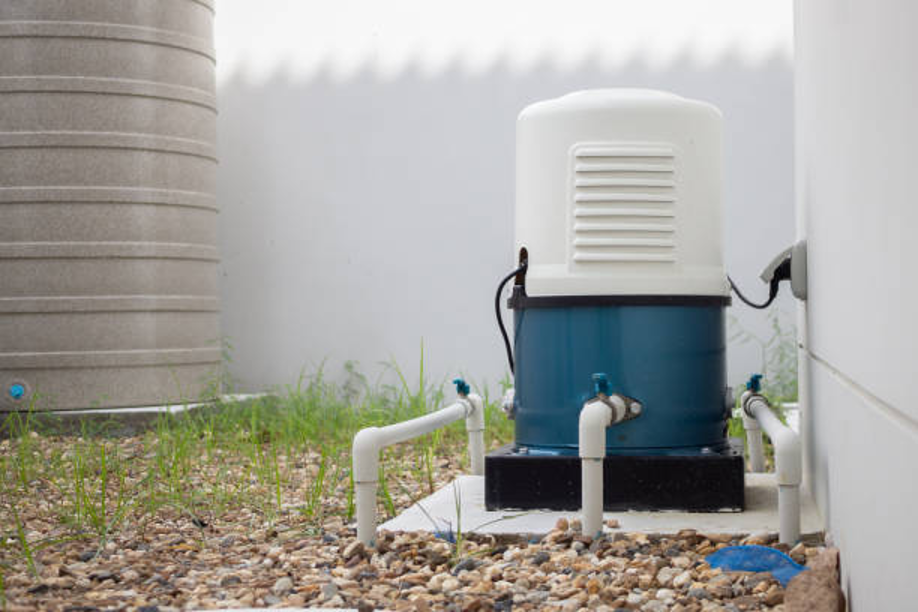Maximizing Performance: How Outdoor Boiler Filters Enhance Heating Efficiency?
In the realm of heating systems, efficiency is paramount. Whether it’s a residential setup or an industrial one, optimizing performance not only reduces operational costs but also minimizes environmental impact.
One often overlooked yet crucial component in achieving this efficiency is the outdoor boiler filter. In this comprehensive guide, we delve into the significance of outdoor boiler filters and how they contribute to maximizing heating system performance.
Understanding Outdoor Boiler Filters
Before diving into their benefits, let’s first understand what outdoor boiler filters are and how they function. Outdoor boiler filters, also known as boiler water filters or heating system filters, are devices designed to remove impurities from the water circulating within a boiler system.
These impurities primarily include debris, sediment, rust, and other contaminants that can accumulate over time and compromise the efficiency and longevity of the heating system.
Types of Outdoor Boiler Filters
There are various types of outdoor boiler filters available on the market, each designed with specific features and functionalities. The most common types include:
- Magnetic Filters: These filters utilize magnets to attract and capture ferrous particles from the water, preventing them from circulating through the boiler system.
- Mechanical Filters: Mechanical filters employ physical barriers, such as mesh screens or porous materials, to trap debris and sediment as water flows through them.
- Combination Filters: Some outdoor boiler filters combine magnetic and mechanical filtration methods for enhanced performance and versatility.
The Importance of Outdoor Boiler Filters
Now that we have a basic understanding of outdoor boiler filters, let’s explore why they are essential for maximizing heating system performance:

1. Improved Efficiency
One of the primary benefits of outdoor boiler filters is their ability to enhance system efficiency. By removing impurities from the water, outdoor boiler filters prevent the accumulation of debris and sediment within the boiler and its components.
This, in turn, helps maintain optimal heat transfer rates and prevents blockages that can impede the flow of water through the system. As a result, the boiler operates more efficiently, consuming less energy and reducing heating costs.
2. Extended Equipment Lifespan
Another significant advantage of outdoor boiler filters is their role in prolonging the lifespan of heating system components. By preventing the buildup of contaminants, filters reduce the risk of corrosion, scale formation, and mechanical wear within the boiler and associated equipment.
This not only minimizes the need for costly repairs and replacements but also ensures the system operates reliably for years to come.
3. Reduced Maintenance Requirements
Regular maintenance is essential for keeping heating systems in optimal condition. However, by installing an outdoor boiler filter, users can significantly reduce the frequency and complexity of maintenance tasks.
With fewer contaminants circulating through the system, there is less likelihood of blockages, fouling, and other issues that require manual intervention. This translates to lower maintenance costs and fewer disruptions to system operation.
4. Enhanced Water Quality
In addition to benefiting the heating system, outdoor boiler filters also improve the overall quality of the water used in the system. By removing impurities, filters ensure that the water circulating through the boiler is clean and free from harmful contaminants.
This not only protects the system from damage but also prevents the release of pollutants into the environment, promoting sustainability and compliance with regulatory standards.
Choosing the Right Outdoor Boiler Filter
Selecting the appropriate outdoor boiler filter for your heating system is crucial to maximizing its performance and efficiency. Here are some factors to consider when choosing a filter:

1. Filtration Efficiency
Look for a filter that offers high filtration efficiency, capable of capturing a wide range of contaminants, including both ferrous and non-ferrous particles. The filter should effectively remove debris, sediment, rust, and other impurities without impeding water flow or causing excessive pressure drop.
2. Installation and Maintenance
Consider the ease of installation and maintenance when selecting a filter. Opt for a model that is straightforward to install and compatible with your existing boiler system. Additionally, choose a filter that is easy to clean or replace, as regular maintenance is essential for optimal performance.
3. Durability and Reliability
Invest in a high-quality filter constructed from durable materials that can withstand the demands of continuous operation. Look for features such as corrosion resistance, robust construction, and reliable sealing mechanisms to ensure long-term reliability and performance.
4. Compatibility
Ensure that the filter you choose is compatible with your specific boiler system, including its size, flow rate, and configuration. Consider factors such as pipe diameter, mounting options, and inlet/outlet connections to ensure seamless integration with your existing setup.
Conclusion
Outdoor boiler filters play a vital role in enhancing heating system performance and efficiency. By removing impurities from the water, these filters improve heat transfer rates, extend equipment lifespan, reduce maintenance requirements, and enhance water quality.
When selecting a filter for your boiler system, consider factors such as filtration efficiency, installation and maintenance requirements, durability, and compatibility. By choosing the right filter and incorporating it into your heating system, you can maximize efficiency, reduce operating costs, and ensure reliable operation for years to come.







